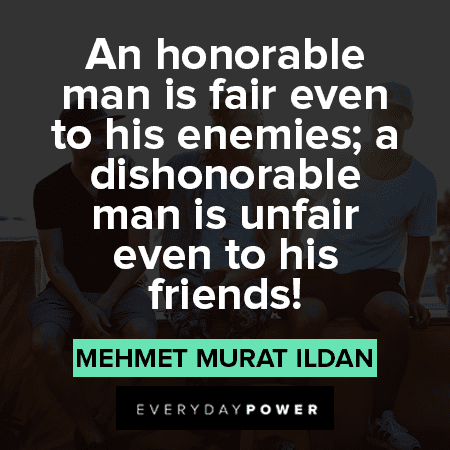A Honorable Enemy vs A Dishonorable Friend
Human relationships, at their core, are intricate and multifaceted, shaped by a web of trust, loyalty, and shared values. In our quest to navigate life’s complexities, we often face dilemmas that test our moral compass. Among the most challenging of these is choosing between a noble adversary and a deceitful ally. 
This contrast a honorable enemy versus a dishonorable friend illuminates the deeper truths about integrity, character, and the essence of genuine relationships.
The Weight of Integrity in Relationships
Integrity serves as the cornerstone of any meaningful interaction. A honorable enemy, though opposed to you, operates within a framework of honesty and principle. They challenge your ideas, ambitions, or beliefs, but do so without deceit or malice. Such an individual’s actions are guided by a consistent moral code, making their opposition predictable and, paradoxically, respectable.
A historical example often cited is the rivalry between Alexander
Hamilton and Thomas Jefferson. Despite their ideological clashes, their mutual respect and adherence to principle contributed to the foundation of American democracy.
Conversely, a dishonorable friend erodes trust through duplicity. They mask their true intentions under the guise of camaraderie, using manipulation or betrayal to serve personal agendas. This betrayal strikes deeper because it exploits the vulnerability that trust demands. Unlike the transparent opposition of an honorable enemy, the deceit of a dishonorable friend creates an environment of doubt, destabilizing the very foundation of the relationship.
The Hidden Value of Noble Opposition
Adversaries who uphold honor inadvertently contribute to our growth. Their opposition, grounded in principle rather than spite, forces us to examine our convictions critically. A honorable enemy’s challenges can reveal blind spots, encourage innovation, and refine our strategies. Such dynamics often transcend personal animosities to foster mutual improvement.
In the professional world, for instance, competition between companies with ethical practices benefits industries as a whole. Rivals like Apple and Microsoft have historically pushed each other to innovate while maintaining respect for intellectual property and fair competition. This constructive rivalry contrasts sharply with businesses that employ sabotage or unethical practices to undermine competitors.
Similarly, in personal relationships, a noble adversary’s honesty can act as a mirror, reflecting truths we might otherwise overlook. Their ability to critique without malice is an invaluable tool for self-improvement. While the sting of criticism is inevitable, the intentions behind it—when pure make all the difference.
The Toxicity of Betrayal and Dishonor
Betrayal by a dishonorable friend carries a unique sting, often leading to profound disillusionment. This type of deceit erodes the foundational elements of any relationship: trust and loyalty. Unlike the straightforward challenges posed by a noble enemy, dishonorable friends manipulate perceptions, making it difficult to distinguish their true intentions.
In the realm of governance and politics, history offers sobering lessons. Julius Caesar’s assassination, famously involving his close ally Brutus, underscores the devastating impact of betrayal. Caesar’s poignant words, “Et tu, Brute?” epitomize the depth of pain inflicted by a trusted confidant’s dishonor. Such betrayals resonate beyond personal relationships, shaking institutions and societies.
Dishonorable friends often exploit emotional bonds to achieve their objectives, leaving their victims grappling with self-doubt and mistrust. The psychological toll can be profound, as the betrayal often triggers feelings of inadequacy and isolation. In contrast to the clarity provided by honorable enemies, the dishonorable friend clouds judgment, leaving in their wake a trail of emotional and sometimes material destruction.
Choosing Wisely: The Ethical Dilemma
Navigating the dichotomy between a honorable enemy and a dishonorable friend requires a nuanced understanding of values and priorities. It is tempting to seek alliances at any cost, especially when faced with adversity. However, the short-term convenience of associating with a dishonorable friend often leads to long-term consequences that outweigh any immediate benefits.
When confronted with this choice, consider the following:
Clarity of Purpose
A honorable enemy’s opposition can sharpen your sense of direction. Their challenges force you to clarify your goals and reinforce your commitment to them. By contrast, the confusion sown by a dishonorable friend can derail progress and create unnecessary distractions.
Moral Alignment
While a noble adversary may disagree with your approach or beliefs, their integrity ensures that interactions remain respectful. In contrast, a dishonorable friend’s lack of moral grounding poses a constant threat to stability and trust.
Legacy and Influence
The relationships we cultivate often influence our personal and professional legacies. Aligning with individuals who lack honor can tarnish reputations and undermine credibility. Conversely, the respect garnered from engaging with honorable enemies can enhance one’s standing, even in the face of disagreement.
Ultimately, the choice lies in valuing authenticity over convenience. By embracing relationships rooted in integrity—even when they involve conflict—we cultivate an environment conducive to growth, respect, and meaningful interaction. An honorable enemy, though challenging, offers the transparency and principle necessary for constructive engagement. A dishonorable friend, however comforting initially, undermines the very essence of trust, leaving behind a wake of disillusionment and regret.
References
- The Role of Integrity in Relationships
- Hamilton vs. Jefferson: A Rivalry That Shaped a Nation
- The Power of Constructive Criticism
- Lessons from Famous Betrayals in History
- Building Resilience After Betrayal
- How Competition Spurs Innovation
- The Dynamics of Trust in Human Relationships
- Case Studies in Ethical Leadership
- Navigating Professional Rivalries
- Friendship and Deception: Psychological Impacts

































